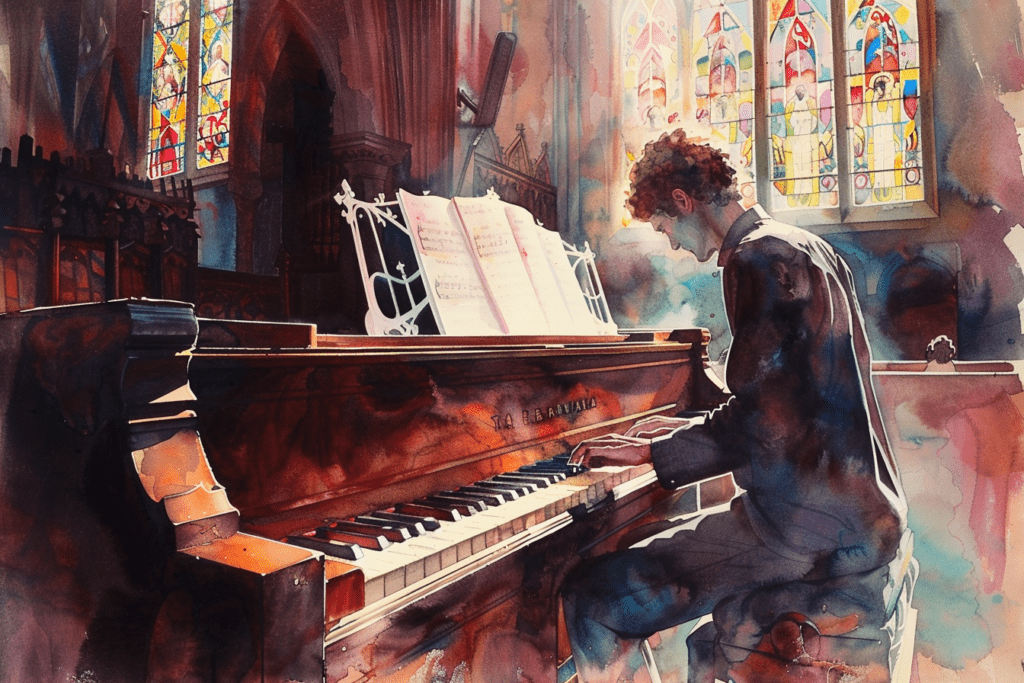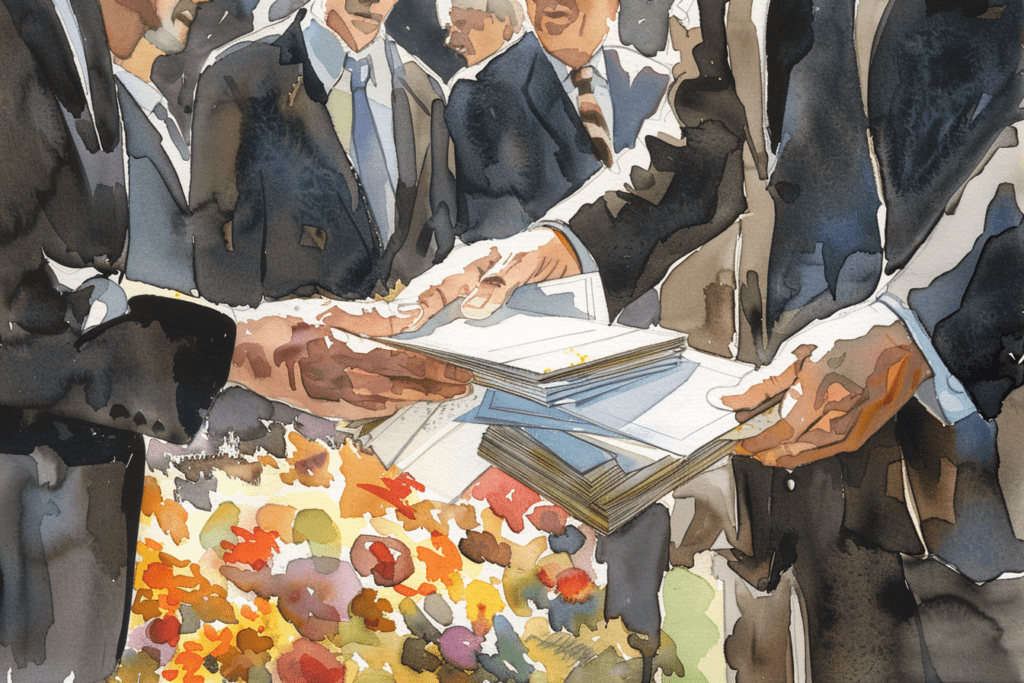
How To Choose The Right Song For A Funeral



Introduction

Funerals are deeply personal and emotional events, serving as a final farewell to a loved one. Music plays a significant role in setting the tone and reflecting the personality and beliefs of the deceased.
Selecting the right song for a funeral can be a daunting task, given its importance in honouring the departed and providing solace to the grieving.
This guide aims to help you choose the perfect song for a funeral, ensuring it resonates with the memories and emotions associated with your loved one.
Article Contents
- Understanding the Importance of Funeral Music
- Considerations When Choosing a Funeral Song
- Types of Funeral Songs
- Steps to Select the Perfect Funeral Song
- Examples of Popular Funeral Songs
- Conclusion

Understanding the Importance of Funeral Music

Music at funerals serves multiple purposes. It can evoke memories, offer comfort, and bring people together in their shared grief. Understanding why music is integral to a funeral can guide you in making a thoughtful choice.
Emotional Connection
Music has the power to express feelings that words alone cannot. It can encapsulate the essence of the departed, capturing their spirit, personality, and the impact they had on others’ lives.
Cultural and Religious Significance
Many cultures and religions have specific traditions involving music at funerals. It’s essential to consider these when choosing a song, ensuring it aligns with any cultural or religious customs that are important to the deceased and their family.

Considerations When Choosing a Funeral Song

Selecting a funeral song involves balancing personal preferences, the wishes of the deceased (if known), and the expectations of family and friends. Here are some factors to consider:
Reflecting the Personality of the Deceased
Choose a song that embodies the character, passions, or significant moments of the deceased’s life. If they had a favourite artist, genre, or song, incorporating that can make the service feel more personal and meaningful.
Audience Sensitivity
The chosen song should be respectful and considerate of the diverse emotions and beliefs of those attending the funeral. Opt for lyrics that are comforting and appropriate for the sombre occasion.
Length and Format
Funeral services often have time constraints. Ensure the song’s length fits within the schedule and that the format is suitable for the venue’s audio setup. It might be helpful to select a specific section of a longer piece that is particularly meaningful.

Types of Funeral Songs

There are various types of songs to consider, each bringing a different tone and message to the service. Here are some common categories:
Traditional Hymns
For religious ceremonies, traditional hymns are often a fitting choice. They offer a sense of familiarity and spiritual comfort. Examples include “Amazing Grace,” “How Great Thou Art,” and “Ave Maria.”
Contemporary Songs
Modern songs can also be powerful, especially if they held particular significance for the deceased. Artists like Eric Clapton (“Tears in Heaven”), Sarah McLachlan (“Angel”), and Josh Groban (“You Raise Me Up”) have songs that are popular choices for funerals.
Classical Music
Classical pieces can provide a serene and timeless backdrop. Compositions like Johann Sebastian Bach’s “Air on the G String,” Ludwig van Beethoven’s “Moonlight Sonata,” and Samuel Barber’s “Adagio for Strings” are elegant and moving options.
Personal Favourites
Including a song that was a personal favourite of the deceased can make the service uniquely reflective of their life. This could range from their favourite pop song to a cherished folk tune.

Steps to Select the Perfect Funeral Song

Following a step-by-step approach can simplify the process of selecting the right song.
1. Gather Input from Family and Friends
Discuss with close family members and friends to gather insights about the deceased’s musical preferences and any specific songs that might be meaningful.
2. Consider the Venue and Format
Ensure the song can be played effectively at the chosen venue. If it’s a live performance, confirm the availability of musicians and necessary equipment.
3. Review Lyrics Carefully
Pay close attention to the song’s lyrics to ensure they convey an appropriate message. The lyrics should align with the tone of the service and the emotions you wish to evoke.
4. Test the Audio
If you are using a recorded version of the song, test the audio quality beforehand. This ensures there are no technical issues during the service.
5. Create a Shortlist
Compile a shortlist of potential songs and listen to them in the context of the funeral. This can help you determine which song feels most fitting.

Examples of Popular Funeral Songs

Choosing the right song can profoundly impact the tone and emotional resonance of a funeral. Here are ten examples for each category to help you find the perfect piece of music for your loved one’s service.
Hymns
- “Amazing Grace” – A timeless hymn known for its message of redemption and hope.
- “The Old Rugged Cross” – A beloved hymn reflecting faith and sacrifice.
- “It Is Well With My Soul” – A hymn of peace and comfort in the face of loss.
- “How Great Thou Art” – Celebrates the majesty of creation and faith.
- “Be Thou My Vision” – A prayerful hymn seeking divine guidance.
- “Abide With Me” – A plea for God’s presence in times of trouble.
- “Nearer, My God, to Thee” – Expresses the soul’s longing for closeness with God.
- “In the Garden” – A hymn of personal communion with God.
- “Great Is Thy Faithfulness” – Celebrates the constancy and faithfulness of God.
- “Blessed Assurance” – A hymn of confident faith and comfort in salvation.
Contemporary Songs
- “Tears in Heaven” by Eric Clapton – A touching song about loss and the hope of reunion.
- “Angel” by Sarah McLachlan – Reflects themes of comfort and peace.
- “Somewhere Over the Rainbow” by Israel Kamakawiwoʻole – Offers a hopeful and uplifting perspective.
- “You Raise Me Up” by Josh Groban – A powerful song about finding strength in times of difficulty. 5. “Hallelujah” by Leonard Cohen – Known for its haunting beauty and reflective lyrics.
- “See You Again” by Wiz Khalifa ft. Charlie Puth – A song about remembering and longing for a loved one.
- “Wind Beneath My Wings” by Bette Midler – Celebrates the supportive and inspiring presence of a loved one.
- “Dancing in the Sky” by Dani and Lizzy – Contemplates life after death and the hope of seeing loved ones again.
- “Unchained Melody” by The Righteous Brothers – Evokes deep emotions and longing.
- “In the Arms of an Angel” by Sarah McLachlan – Offers a sense of peace and solace.
Classical Pieces
- “Air on the G String” by Johann Sebastian Bach – A serene and elegant piece.
- “Canon in D” by Johann Pachelbel – Known for its peaceful and harmonious melody.
- “Clair de Lune” by Claude Debussy – Evokes tranquility and reflection.
- “Adagio for Strings” by Samuel Barber – A deeply emotional and moving composition.
- “Nimrod” from Enigma Variations by Edward Elgar – A powerful and evocative piece.
- “Ave Maria” by Franz Schubert – Combines beauty with spiritual significance.
- “Lacrimosa” from Requiem by Wolfgang Amadeus Mozart – Captures the essence of mourning and remembrance.
- “Pavane” by Gabriel Fauré – A gentle and reflective piece.
- “Moonlight Sonata” by Ludwig van Beethoven – Known for its melancholic and contemplative mood.
- “Pie Jesu” by Gabriel Fauré – A soothing and ethereal composition.
Personal Favorites
- “What a Wonderful World” by Louis Armstrong – Celebrates the beauty of life and the world.
- “My Way” by Frank Sinatra – Reflects a life lived on one’s own terms.
- “Time to Say Goodbye” by Andrea Bocelli and Sarah Brightman – A poignant farewell.
- “Over the Rainbow” by Judy Garland – Offers a hopeful and dreamy perspective.
- “Imagine” by John Lennon – Envisions a world of peace and unity.
- “Hero” by Mariah Carey – Celebrates the strength and impact of a loved one.
- “I’ll Be Seeing You” by Billie Holiday – Reminisces about memories and love.
- “Let It Be” by The Beatles – Offers a message of acceptance and peace.
- “Somewhere Only We Know” by Keane – Reflects on cherished moments and places.
- “Yesterday” by The Beatles – Contemplates the passage of time and loss.

Conclusion

Choosing the right song for a funeral involves a blend of personal reflection and consideration of the deceased’s life and values.
By exploring various categories and examples, you can find a song that not only honours your loved one but also provides comfort to those who mourn.
Music has a unique ability to capture emotions and memories, creating a meaningful and lasting tribute.







